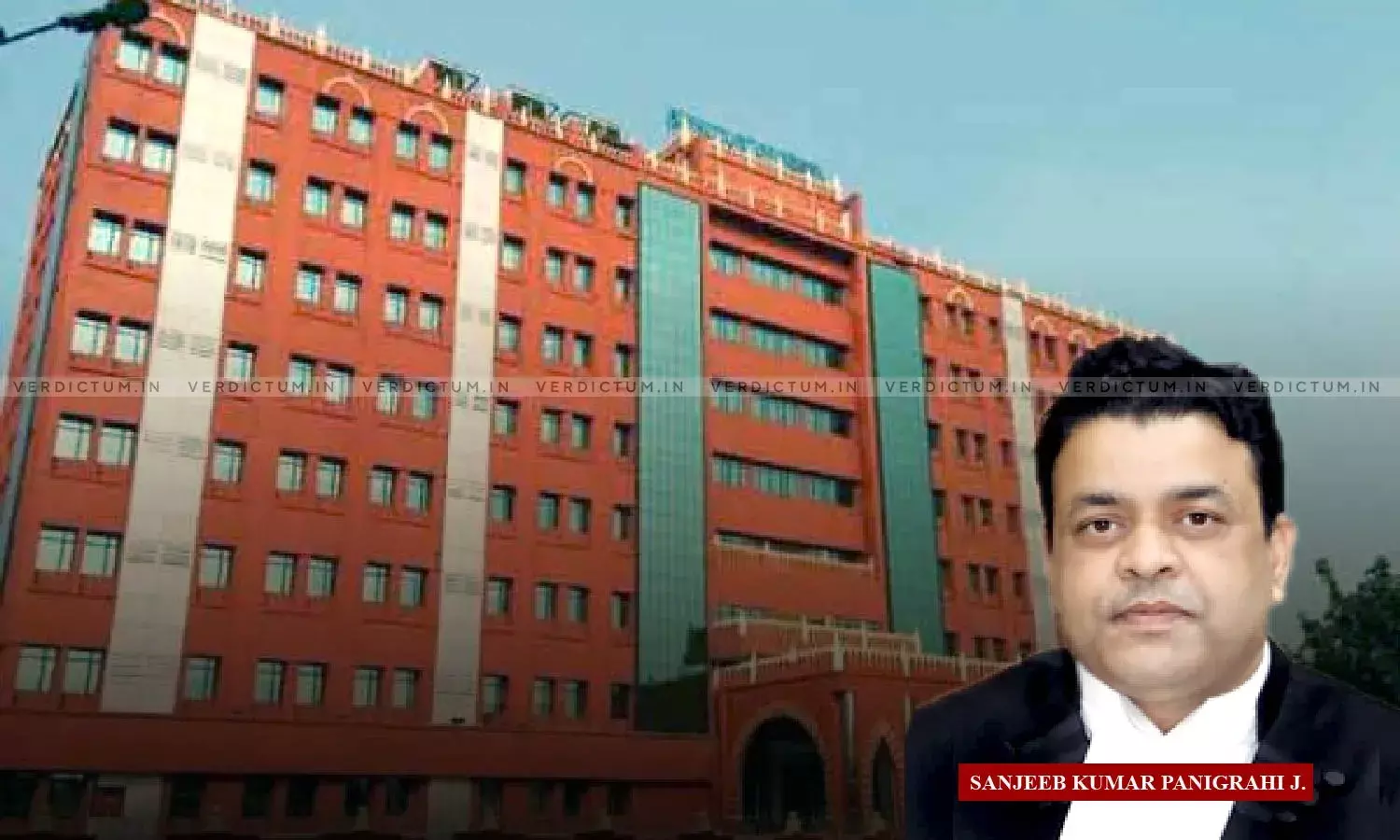Object of Railway Act To Ensure Swift and Equitable Compensation To Victims Of Railway Accidents, Not Prolonged Fault-Finding Proceedings: Orissa High Court
The High Court underscored that Section 124A of the Railways Act, 1989, enacts a regime of strict liability.

The Orissa High Court observed that the underlying object of the statutory scheme of Railway Act, 1989 is to ensure prompt and equitable compensation to the victims of railway accidents, rather than to entangle them in protracted proceedings of fault-finding or negligence.
An Appeal was filed by the Appellant challenging the order passed by the Railway Claims Tribunal, which dismissed the claim application for compensation arising out of the death occurred in an ‘untoward incident’ within the meaning of Section 124A of the Railways Act, 1989.
The Bench of Justice Sanjeeb K Panigrahi observed, “The underlying object of the statutory scheme is to ensure prompt and equitable compensation to the victims of railway accidents, rather than to entangle them in protracted proceedings of fault-finding or negligence. The denial of relief by the Learned Tribunal runs counter to these settle principles. In the absence of any cogent evidence establishing the applicability of the statutory exceptions, the death of a bona fide passenger on account of a fall from a train squarely fastens statutory liability upon the Respondents- Railways to pay compensation and are accordingly liable to be set aside.”
Advocate Dhananjaya Mund represented the Appellant, while Advocate Amit Kumar Saa represented the Respondent.
Case Brief
The Appellant challenged the order passed by the Railway Claims Tribunal, which dismissed the claim application for compensation arising out of the death occurred in an ‘untoward incident’ within the meaning of Section 124A of the Railways Act, 1989.
The deceased was travelling in the train and during the course of the journey the compartment was overcrowded, and due to sudden jerk caused by the application of brakes and the push and pull of passengers, the deceased lost his balance, fell from the running train, as a result he was succumbed with injuries and died on the spot.
However, the Tribunal dismissed the claim of the Appellants by finding that the deceased did not qualify as a bona fide passenger, nor could the occurrence be brought within the statutory ambit of an “untoward incident” under the Act.
Court’s Observation
At the outset, the High Court underscored that the absence of any wrongful act, negligence or default on the part of the Railway Administration was of no consequence, inasmuch as the provisions of Section 124-A of the Railways Act embody the principle of strict liability.
“This Court observed that once the primary facts, namely, the death of a passenger in an “untoward incident” and that such passenger was a bona fide passenger, stood established, the liability of the Railway Administration became absolute”, the Court observed.
With regard to the reasoning by the Tribunal, the Court opined that it was a matter of common occurrence that an accidental fall from a moving train may culminate in the passenger being run over either by the same train or by another, thereby sustaining grievous or fatal injuries. “Such a subsequent development does not alter the intrinsic character of the mishap as an “accidental fall”. There is no material on record to suggest any alternative hypothesis, such as the deceased being present on the railway track independent of the train journey”, the High Court added.
The High Court highlighted that Section 124A of the Railways Act, 1989 provides that once it was established that the death or injury has occurred as a result of an “untoward incident”, the Railway Administration was bound to pay compensation, irrespective of any negligence or default on its part, unless the case falls within the specific exceptions.
Resultantly, it was held that the deceased died on account of accidental fall from a running train as the Appellants could produce valid journey ticket, Inquest Report, Post mortem report and final report.
“The underlying object of the statutory scheme is to ensure prompt and equitable compensation to the victims of railway accidents, rather than to entangle them in protracted proceedings of fault-finding or negligence. The denial of relief by the Learned Tribunal runs counter to these settle principles”, the Court observed.
Accordingly, the Court allowed the Appeal and directed that the Appellant was entitled to compensation of Rs.8,00,000/-.
Cause Title: Santosh Ku. Sahoo V. Union of India
Click here to read/download Order

